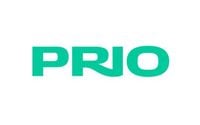On Thursday, May 1, 2025, Prio (PRIO3) made headlines by announcing a significant agreement with Equinor Brasil to acquire a 60% stake and operational control of the Peregrino and Pitangola oil fields. This landmark deal, valued at approximately $3.35 billion, is set to bolster Prio's oil reserves by adding 202 million barrels of 1P+1C reserves and resources, as per estimates referenced on January 1, 2024.
The acquisition is structured in two parts: the first involves acquiring a 40% stake along with operational control of the Peregrino field, while the second encompasses an additional 20% stake. With this acquisition, Prio will become the sole owner and operator of the Peregrino field, marking a significant milestone in its growth strategy.
Prio's investment in the Peregrino field is not just a financial move; it reflects a broader ambition to expand its footprint in Brazil's oil and gas sector. The company has stated that the total value of the transaction could rise to $3.5 billion when considering the interest accrued during the deal.
According to the details released, the $3.35 billion will be divided into two main payments: $2.233 billion for the 40% stake and operational control, alongside an earn-out of $166 million contingent upon the successful completion of the 20% acquisition, which is valued at $951 million. This structured payment plan demonstrates Prio's careful approach to financing the deal.
Completion of the acquisition is anticipated between late 2025 and mid-2026, pending usual regulatory approvals from Brazil's National Agency of Petroleum, Natural Gas and Biofuels (ANP) and the Administrative Council for Economic Defense (Cade). Prio has assured stakeholders that all payments will be financed through existing resources in its current account, supplemented by cash flow generated until the deal's closure. Additionally, the company expects a temporary increase in leverage, projected to reach approximately 2.0 times net debt/EBITDA, which it maintains will remain within healthy and conservative ranges.
The Peregrino field, located in the Campos Basin, is notable for its floating production, storage, and offloading (FPSO) platform, supported by three fixed platforms. Equinor has been operating this field since 2009 and has successfully produced around 300 million barrels of oil from it. This acquisition will allow Prio to leverage its expertise in managing mature oil fields, enhancing its operational capabilities.
Philippe Mathieu, Equinor's Executive Vice President for International Exploration and Production, emphasized the importance of Brazil in Equinor's global strategy, stating, "Brazil will remain a key country for Equinor as we focus on bringing the Bacalhau field into operation and developing the Raia gas project. With these two projects operational and our partnership in Roncador, our equity production in Brazil will approach 200,000 barrels per day by 2030." This statement underscores the competitive landscape in Brazil's oil sector, where both Prio and Equinor are vying for greater market share.
Notably, this acquisition follows Prio's previous purchase of a 40% stake in the Peregrino field from Sinochem for $1.9 billion, completed in December 2024. The strategic acquisition of the remaining stakes from Equinor illustrates Prio's aggressive growth strategy and commitment to expanding its operational capacity in Brazil.
Prio, formerly known as PetroRio, has positioned itself as one of Brazil's largest independent oil and gas production companies, focusing on the acquisition, development, and operation of mature oil fields. The company's recent announcements, including a $1 billion investment in the development of a new oil field in the Campos Basin, aim to increase production by 20% by 2027, further solidifying its role in the energy market.
As Prio continues to expand its portfolio, the implications of this deal extend beyond just financial metrics. It reflects a growing trend of consolidation in the oil industry, where companies are seeking to enhance their operational efficiencies and resource bases amid fluctuating oil prices and evolving market dynamics. With the global energy landscape shifting towards sustainability, Prio's investments highlight its strategy to remain competitive while navigating the complexities of the oil market.
In conclusion, the acquisition of the Peregrino and Pitangola fields marks a pivotal moment for Prio as it seeks to enhance its operational capabilities and strengthen its market position in Brazil's oil and gas sector. The successful execution of this deal will not only add significant reserves to the company but also position it favorably for future growth opportunities in the evolving energy landscape.





